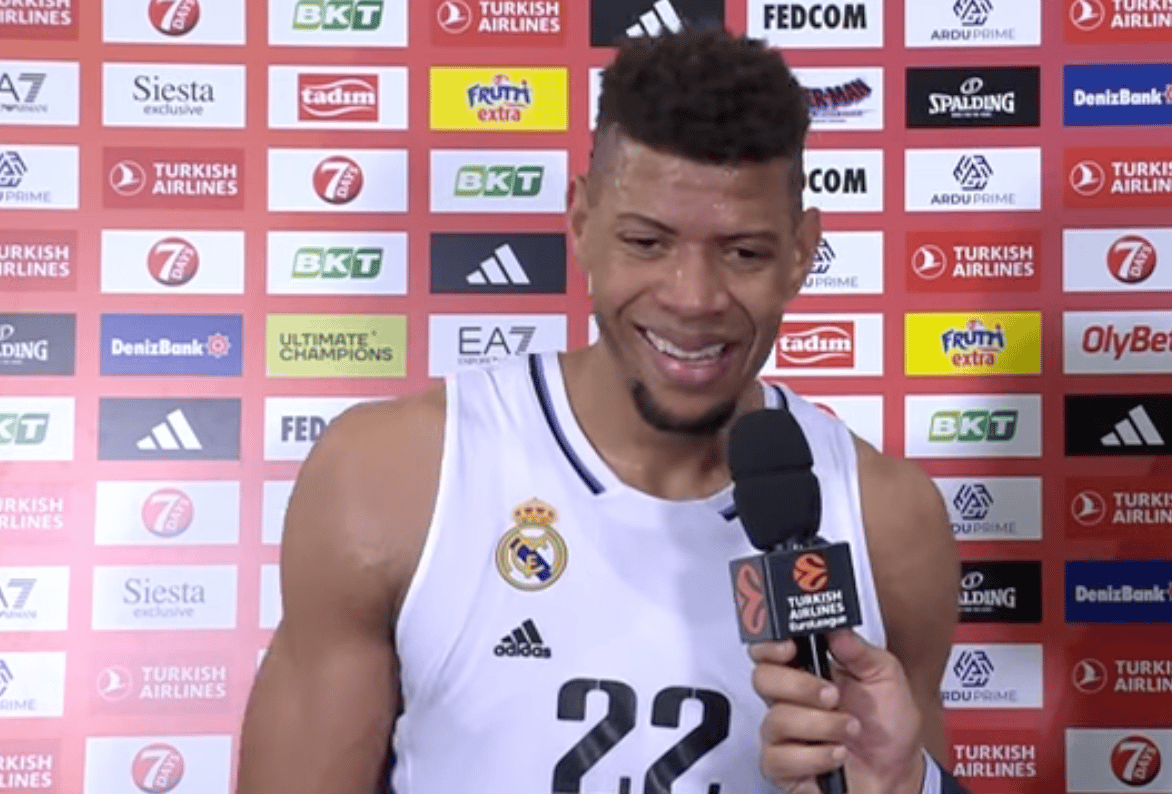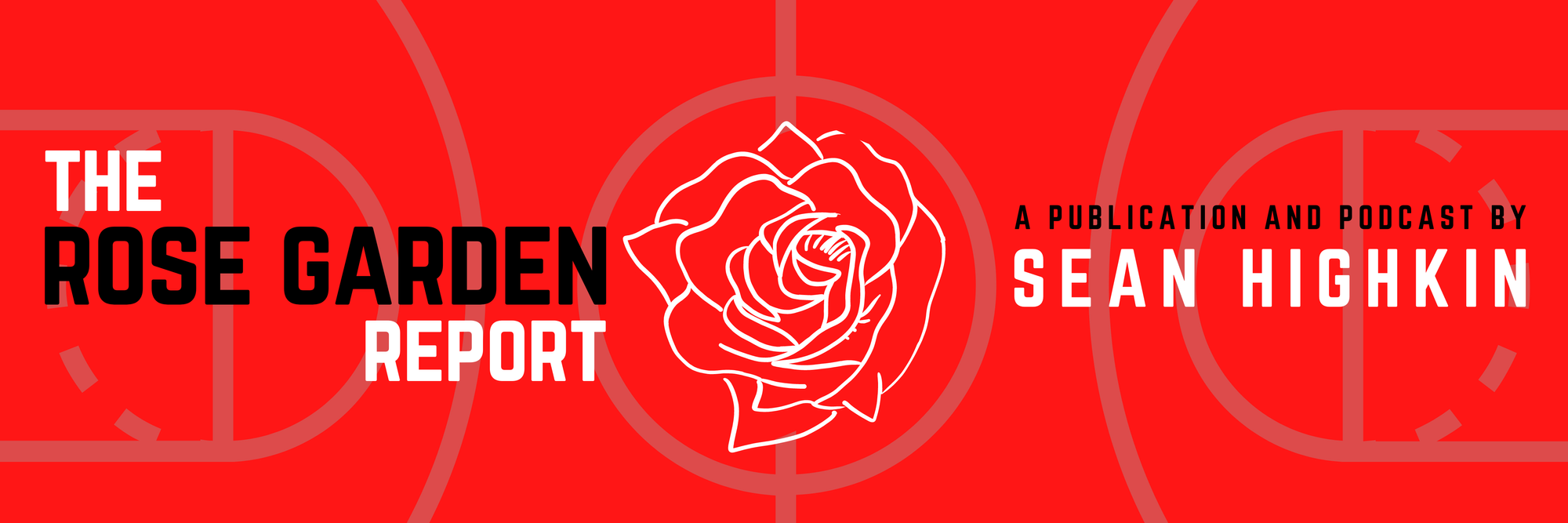Trail Blazers' Interest in Edy Tavares Held Up by International Buyout Rules
The Blazers want to sign the 31-year-old Real Madrid star, but his contract presents a serious hurdle.

Outside of re-signing Jerami Grant and Matisse Thybulle, the Trail Blazers have had a quiet summer while the basketball world waits for Damian Lillard's trade request to be decided one way or another.
The only concrete name Portland has been linked to this offseason is 7-foot-3 Real Madrid center Walter “Edy” Tavares, a 2014 second-round pick who played 13 games over parts of two seasons with the Cavs and Hawks in 2016 and 2017 before returning to Spain.
Donatas Urbonas of BasketNews.com, one of the most reliable and plugged-in reporters covering European basketball, first reported on July 1 that the Blazers were planning to offer Tavares a multi-year contract.
According to league sources, there is mutual interest between the Blazers and Tavares in bringing him over. But his Real Madrid contract includes an expensive buyout clause that would need to be resolved first. It remains to be seen whether a deal will ultimately come to fruition.
Looking at the NBA's rules about teams paying international players' contract buyouts, there is real reason for skepticism that Tavares will be able to join the Blazers this summer unless he's willing to pay a significant amount of money himself to make it happen.
Since his brief, forgettable stint in the NBA, Tavares has had a long and impressive career in Spain. He's been named the Spanish Liga ACB's Defensive Player of the Year three years in a row, won MVP of both the Spanish League Finals and Spanish Supercup in 2022, was MVP of the EuroLeague Final Four this year, has been named All-EuroLeague First Team the last three seasons and is the EuroLeague's all-time career leader in blocks.
At age 31, it makes sense that Tavares would want to take another shot at the NBA after such an accomplished career overseas. And with the Blazers beefing up their international scouting operation considerably in the last 18 months since Joe Cronin was named general manager, it's not entirely surprising that they'd be interested in signing a veteran EuroLeague star. Tavares would certainly fill a position of need and provide rim protection behind Jusuf Nurkic. Portland is incredibly thin up front after losing backup center Drew Eubanks, who signed with the Suns on the opening day of free agency.
Taking a flier on Tavares makes sense, especially if Lillard is traded and the Blazers pivot to a rebuild. But the finances will be tough to get squared away.
Contract information for most international basketball leagues is not nearly as readily available as NBA salaries are, either to the public or even to front offices. A November estimate from BasketNews.com suggests that Tavares' Real Madrid salary could be somewhere in the neighborhood of €2 million per year (about $2.25 million). He reportedly signed a five-year contract in 2019, meaning he will be a free agent after the 2024 season. While the exact number on his buyout clause is not known, BasketNews.com estimates that it could be north of €6 million, which translates to around $6.7 million, or three times Tavares' annual salary.
The Blazers can help with some of Tavares' buyout, but likely not all of it. For the coming season, the NBA's collective bargaining agreement allows teams to pay up to $825,000 towards players' buyouts from international clubs without it counting against the salary cap. Anything above that amount is considered a "signing bonus" in the player's contract, and counts against the cap. The CBA limits signing bonuses to 15 percent of the total amount of a player's contract.
Since Portland hasn't made any free-agent additions yet, they have both of their exceptions to work with—the full $12.4 million non-taxpayer mid-level and the $4.5 million biannual exception. However, using more than the taxpayer mid-level exception (up to $5 million per year for up to two years) would trigger the $172 million hard cap, as would using the biannual exception. As of today, the Blazers’ payroll is around $161 million for the coming season, so signing any player to a deal that subjects them to the hard cap greatly limits their flexibility.
The most the Blazers would be able to offer Tavares without hard-capping themselves is a two-year deal worth $10 million, and up to $1.5 million of that money could be counted as a signing bonus going towards paying his Real Madrid buyout. Adding that to the $825,000 the team is allowed to contribute directly would still leave Tavares on the hook to pay the remaining $4 million-plus out of his own pocket if he wants to come back to the NBA that badly.
It's been done—Tavares' former Real Madrid teammate, Facundo Campazzo, had a similarly-sized buyout in his deal in 2020 and decided to pay it in order to sign with the Denver Nuggets on a two-year, $6.4 million contract.
Portland could offer Tavares a bigger deal than the taxpayer mid-level if they wanted to, and thus be able to help with more of the buyout (a four-year, $40 million contract with a 15 percent signing bonus would allow them to cover the entire $6 million). But hard-capping themselves for a center who hasn't played in the NBA in almost seven years wouldn't make much sense; if he's willing to take on the cost of buying out his contract to sign a deal for the taxpayer mid-level or less, or his agent and Real Madrid negotiate the buyout number down to help with his release, that makes it a lot more feasible.
More likely, if the interest is still there from both sides a year from now when Tavares' contract with Real Madrid runs out and the Blazers still need frontcourt depth, they could just sign him as a free agent and not worry about any of this. But a lot of that hinges on what Portland gets back in an eventual Lillard trade.




Comments ()